In the first trial of its kind in over 35 years, Archbishop Viganò could be excommunicated for criticising the Pope and questioning the legitimacy of the Vatican council. Ian O’Reilly explains the case
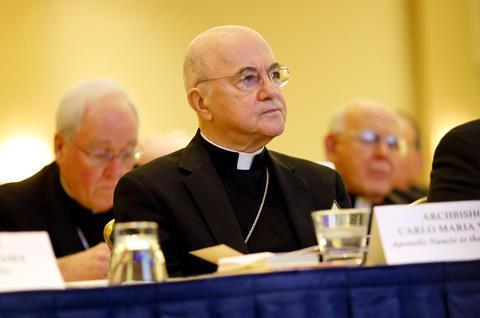
For many outside of the Catholic Church, news of the first schism for almost 40 years may have passed them by. For Catholics, and especially traditional Catholics who celebrate the traditional Latin Mass, the trial of the former Vatican ambassador to the USA and Archbishop, Carlo Maria Viganò, has sent shock waves throughout their community.
It also has a significant impact on American Catholicism as a whole, threatening to create a fundamental split and give Pope Francis one of the most challenging crises of his papacy.
Who is this Archbishop and what has he been accused of?
Archbishop Carlo Maria Viganò is an Italian Bishop of the Catholic Church.
He is facing charges in an extrajudicial criminal trial by the Vatican’s Dicastery for the Doctrine of the Faith. The accusations include committing schism, denying the legitimacy of Pope Francis, and rejecting the Second Vatican Council.
These charges stem from Viganò’s public criticisms of Pope Francis and his opposition to the reforms initiated by Vatican II. Archbishop Viganò posted news of the trial on his website, including the formal summons. It also appears that Viganò has refused to attend the trial.
Viganò has gone as far as accusing Pope Francis of heresy
The crime of schism refers to the willful and persistent separation from the unity of the Church and its legitimate authority, particularly that of the Pope. This can involve rejecting the authority of the Pope, refusing communion with other members of the Church, or creating a separate ecclesial community.
Schism is considered a grave offence because it disrupts the unity and communion essential to the Church’s structure and mission. Canon law imposes serious penalties, including excommunication, on those found guilty of schism.
How did all of this begin?
In August 2018, Viganò released an 11-page letter publicly accusing Pope Francis and other senior church officials of covering up allegations of sexual misconduct against the American Cardinal Theodore McCarrick.
McCarrick had been a prominent figure in the Church and was accused of sexually abusing seminarians and minors. Viganò claimed that he had informed Pope Francis about McCarrick’s misconduct in 2013, but that the Pope had lifted sanctions previously imposed on McCarrick by Pope Benedict XVI. According to Viganò, Pope Francis ignored these warnings and allowed McCarrick to continue in his influential role.
What did the Pope say in response?
Initially, Pope Francis chose not to respond directly to Viganò’s allegations, instead urging journalists to investigate the claims themselves. Later, he denied having knowledge of the sanctions against McCarrick, and there is no clear evidence that he did know of the sanctions or their withdrawal.
However, In February 2019, McCarrick was laicized (so he is no longer a Priest) after a Vatican investigation found him guilty of sexual crimes against minors and adults, and abuse of power.
The Vatican released a report in November 2020 detailing the Church’s handling of the case. It acknowledged failures and missteps by various officials but did not support Viganò’s claims regarding Pope Francis’s actions.
Why is Archbishop Viganò so controversial?
Archbishop Viganò has been a vocal critic of Pope Francis and the Second Vatican Council (Vatican II), in the process becoming a cause célèbre among the radical traditionalists and sedevacantists (those who believe there has been no valid pope since Vatican II). Even moderate traditionalists have rallied to the defence of Viganò causing significant splits in the American Catholic community.
Viganò has accused Pope Francis of promoting doctrinal confusion and failing to uphold traditional Catholic teachings. He argues that the Pope’s approach to issues such as interfaith dialogue, immigration and moral theology diverges from established Church doctrine, and has gone as far as accusing Pope Francis of heresy, claiming that his teachings and actions undermine the faith. He has been particularly critical of the Pope’s approach to controversial issues like communion for divorced and remarried Catholics.
The crime of schism refers to willful and persistent separation from the unity of the Church
His calling for the rejection or re-evaluation of the Second Vatican Council, arguing that it led to a dilution of Catholic doctrine and practice, is at the heart of the current case against Viganò. He believes the council, which aimed to modernise the Church and improve its relations with the contemporary world, resulted in theological confusion and a loss of traditional liturgical practices - and especially what is now termed the Traditional Latin Mass.
After Vatican II, this was replaced by a new liturgy, often called the Novus Ordo or the mass of Pope Paul IV, which is more often celebrated in the vernacular language of the each country rather than in Latin.
He also argues that the reforms of Vatican II opened the door to secular influences and theological liberalism within the Church, which he claims have led to a crisis of faith and discipline among clergy and laity.
Is it true that he’s a conspiracy theorist too?
He frequently speaks against globalism, which he views as a threat to national sovereignty, religious freedom and traditional values. He warns against the influence of global elites, including George Soros and institutions like the United Nations, which he believes are working towards a New World Order.
He has referred to the Covid-19 pandemic as a “plannedemic,” suggesting that it was orchestrated by global elites to control the population. He has expressed scepticism about the severity of the virus and opposed lockdown measures and vaccines, viewing them as tools of social control.
He has linked the pandemic to the “Great Reset,” a concept promoted by the World Economic Forum (WEF) for rebuilding economies sustainably post-pandemic. Viganò argues that this initiative is part of a broader globalist agenda to establish a totalitarian world government and reduce individual freedoms, as well as reduce the overall global population.
What will happen next?
The Archbishop has refused to take part in the trial, meaning a guilty verdict is all but assumed. In a statement online he said, “I regard the accusations against me as an honour.”
How will this impact the wider Catholic church?
The reverberations could be significant for decades to come. It may well be that more traditionalists form their own communities.
For those who remain, pressure will be placed on the Church hierarchy for the next Pope to be more sympathetic to their cause, potentially causing a backlash from more moderate and progressive wings.
Either way, it is clear this is only the start of the controversy, and the trial will do little to end the divisions seen especially in the North American Catholic Church.
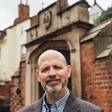













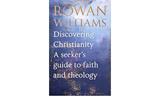
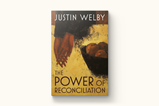
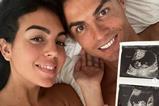




















1 Reader's comment